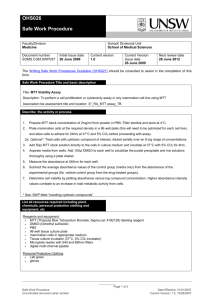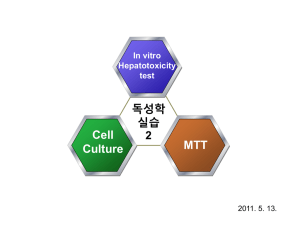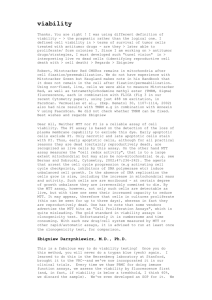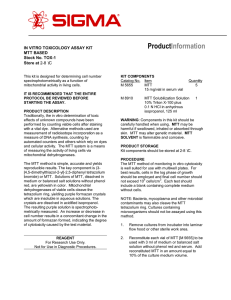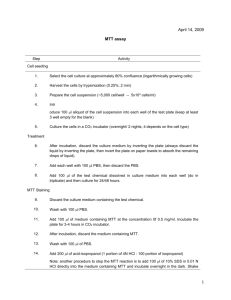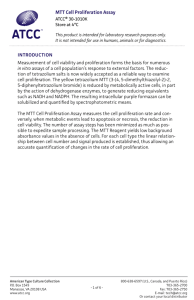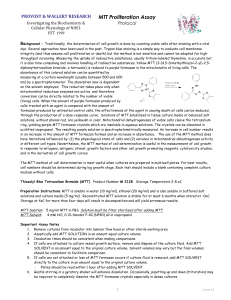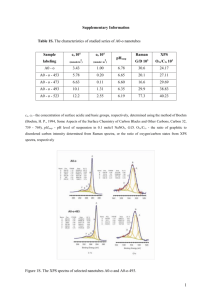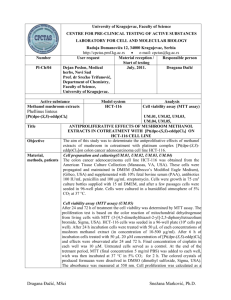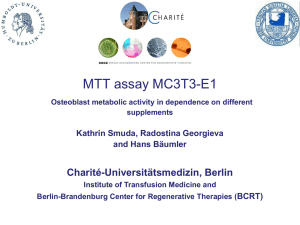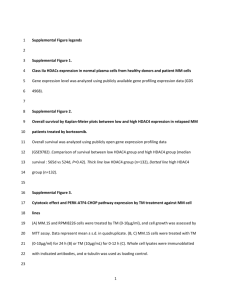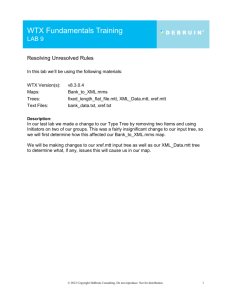word
advertisement
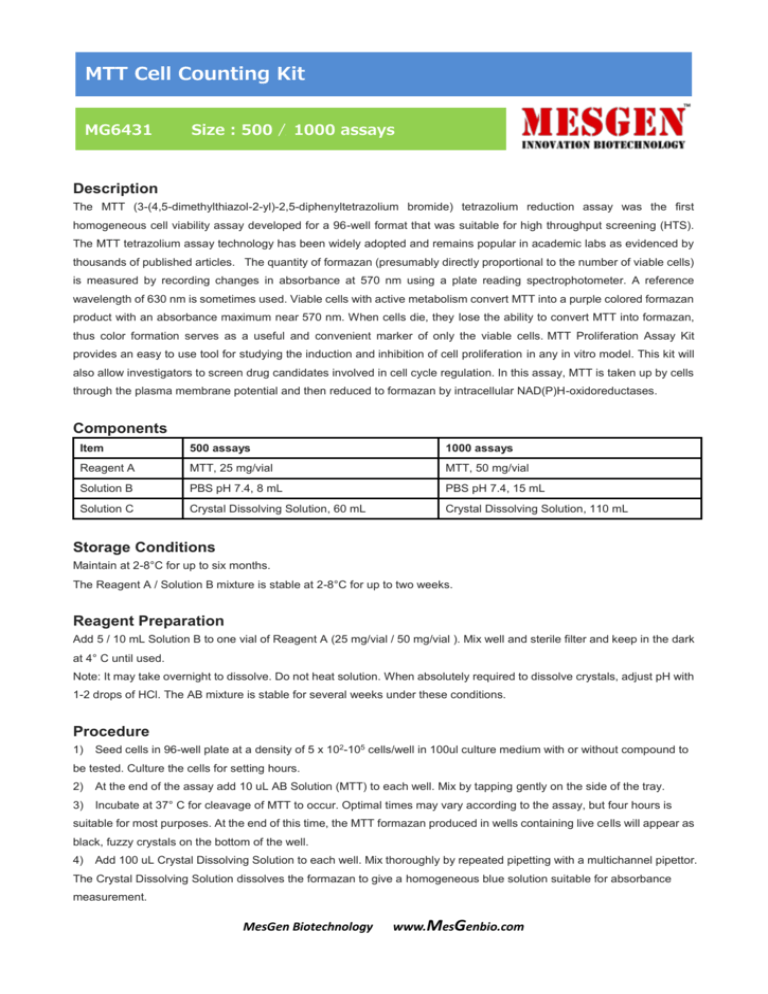
MTT Cell Counting Kit MG6431 Size : 500 / 1000 assays Description The MTT (3-(4,5-dimethylthiazol-2-yl)-2,5-diphenyltetrazolium bromide) tetrazolium reduction assay was the first homogeneous cell viability assay developed for a 96-well format that was suitable for high throughput screening (HTS). The MTT tetrazolium assay technology has been widely adopted and remains popular in academic labs as evidenced by thousands of published articles. The quantity of formazan (presumably directly proportional to the number of viable cells) is measured by recording changes in absorbance at 570 nm using a plate reading spectrophotometer. A reference wavelength of 630 nm is sometimes used. Viable cells with active metabolism convert MTT into a purple colored formazan product with an absorbance maximum near 570 nm. When cells die, they lose the ability to convert MTT into formazan, thus color formation serves as a useful and convenient marker of only the viable cells. MTT Proliferation Assay Kit provides an easy to use tool for studying the induction and inhibition of cell proliferation in any in vitro model. This kit will also allow investigators to screen drug candidates involved in cell cycle regulation. In this assay, MTT is taken up by cells through the plasma membrane potential and then reduced to formazan by intracellular NAD(P)H-oxidoreductases. Components Item 500 assays 1000 assays Reagent A MTT, 25 mg/vial MTT, 50 mg/vial Solution B PBS pH 7.4, 8 mL PBS pH 7.4, 15 mL Solution C Crystal Dissolving Solution, 60 mL Crystal Dissolving Solution, 110 mL Storage Conditions Maintain at 2-8°C for up to six months. The Reagent A / Solution B mixture is stable at 2-8°C for up to two weeks. Reagent Preparation Add 5 / 10 mL Solution B to one vial of Reagent A (25 mg/vial / 50 mg/vial ). Mix well and sterile filter and keep in the dark at 4° C until used. Note: It may take overnight to dissolve. Do not heat solution. When absolutely required to dissolve crystals, adjust pH with 1-2 drops of HCl. The AB mixture is stable for several weeks under these conditions. Procedure 1) Seed cells in 96-well plate at a density of 5 x 102-105 cells/well in 100ul culture medium with or without compound to be tested. Culture the cells for setting hours. 2) At the end of the assay add 10 uL AB Solution (MTT) to each well. Mix by tapping gently on the side of the tray. 3) Incubate at 37° C for cleavage of MTT to occur. Optimal times may vary according to the assay, but four hours is suitable for most purposes. At the end of this time, the MTT formazan produced in wells containing live cells will appear as black, fuzzy crystals on the bottom of the well. 4) Add 100 uL Crystal Dissolving Solution to each well. Mix thoroughly by repeated pipetting with a multichannel pipettor. The Crystal Dissolving Solution dissolves the formazan to give a homogeneous blue solution suitable for absorbance measurement. MesGen Biotechnology www.MesGenbio.com 5) Within an hour, measure the absorbance on an ELISA plate reader with a test wavelength of 570 nm and a reference wavelength of 630 nm. Results Cell viability% = (OD Test Group –OD blank / OD Contol - OD blank) x 100% The MTT assay will normally detect 200 to 50,000 cells of a typical cell line, although 1,000 to 50,000 is the useful range. This number may vary for other cell types. Cytotoxic assays should be set up so that the control, unlysed cells give a signal of 0.2 to 0.4, and proliferation assays should yield a similar value at plateau concentrations. This corresponds to about 20-50,000 cells per well with a typical cell line. Absorbance is directly proportional to the number of cells; actual cells do not absorb significantly, even up to concentrations of 1 x 10 6 cells / mL. For Research Use Only. Not for use in diagnostic procedures. MesGen Biotechnology www.MesGenbio.com
